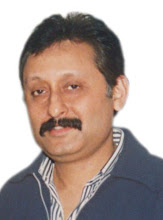In
the six decades of uninterrupted cricket since the retirement of Bradman, and
particularly after the proliferation of the game since the 1970s, several
top-class batsmen have delighted spectators around the world. We shall briefly
dwell on a chosen few, not necessarily for the runs they scored or the averages
they achieved, but for their dominance, quality of strokeplay, elegance,
courage, resilience in battling the odds and impact on the game.
There
is no parallel in world cricket to the saga of the four Ws – Worrell, Weekes
and Walcott of the West Indies . These great Barbados England in 1947-48, which the West
Indies won 2-0, and all three were knighted at various stages.
Frank
Worrell was a calm, stylish strokeplayer, left-arm medium-pace swing bowler,
and first coloured captain of the West Indies ,
rated among the great leaders, a true statesman of the game. Of his highest
Test score of 261 against England
at Trent Bridge England
Worrrell
became the only batsman in first-class cricket to be associated in two
partnerships of 500 or more, both unbroken for the fourth wicket representing Barbados against Trinidad .
In 1943-44, at 19 years the youngest to score a triple century, an unbeaten
308, he put on 502 with John Goddard. Two seasons later, he raised 574 with
Clyde Walcott. Worrell was the odd man out among the three Ws in missing out on
a Test average of 50. He came within touching distance, finishing at 49.48 per
innings for his 3860 runs in 51 Tests.
The
1960-61 series in Australia ,
when Worrell took over the captaincy, was one of the most thrilling in history,
not just for the first tied Test at Brisbane West Indies lost 1-2, but were accorded a
memorable farewell in an open motorcade. From here on, all series between Australia and the West
Indies came to be played for the Frank Worrell Trophy. In 1963 his
team gave a 3-1 thrashing to England India
The
diminutive Everton Weekes was a scintillating strokeplayer, quick on his feet
and particularly strong on the off-side. He scored hundreds in five consecutive
Test innings, beginning with the fourth and final match of his first series, as
he hit up 141 against England
at Kingston India
in 1948-49, Weekes scored 128 at Delhi , 194 at Bombay , and a century in each innings - 162 and 101 - at Calcutta Madras , he was run out for 90, the West Indies winning the only Test that produced a result
in the series. For good measure, Weekes scored 56 and 48 in the final Test,
back at the Brabourne Stadium. He set the pattern as the West
Indies won the toss in all five matches and batted first on
easy-paced wickets. The bulk of the bowling was done by the spin twins, left-armer
Vinoo Mankad and off-spin exponent Ghulam Ahmed, with one medium-pacer of some
quality being Dattu Phadkar. It was, nevertheless, a triumph of concentration,
patience and brilliant strokeplay, as Weekes logged up 779 runs in the series
at an average of 111.28.
When
it was the turn of the Indians to make a return tour of the Caribbean
islands four years later, Weekes was just as severe on their hapless bowlers.
By now leg-spinner Subhash Gupte had joined Mankad. Again the West Indies triumphed
1-0, with the lone win coming at Bridgetown
Weekes
scored three centuries in the 1955-56 series in New Zealand England , as also Australia England
Big
and strong, Clyde Walcott was a savage hitter, renowned for his back-foot
driving. C.L.R. James noted in his Beyond
a Boundary: “For defence and power in putting away the length ball this is
one of the greatest of all batsmen. Only Bradman can be mentioned in the same
breath for commanding hooking of fast bowlers.” Like Weekes, he revelled on the
Indian tour of 1948-49, cracking 452 runs at an average of 75.33. His greatest
run, however, was when Australia Port of Spain , and
155 and 110 at Kingston Kingston England and India
Along
with Weekes, he feasted on the Indian bowling. Not to be left out, Worrell
finally joined the party with his 237 at Kingston West Indies .
So when his great mate Frank Worrell eventually led the West
Indies shortly thereafter, the big hitter would have been a
satisfied, if not totally contented, man. That feeling would have grown when
Walcott himself went on to become president of the West Indies Cricket Board
and chairman of the International Cricket Council (ICC).
Overall, Worrell stood up
to England , the best side
for much of the 1950s before his own team turned the tables; Weekes was the
scourge of India West Indies and amassed 12,113 runs at
an average of 54.80, notching up 39 hundreds. For those times when much less
Test cricket was played than at present, it was a phenomenal performance. Few
chapters in the game are as romantic and colourful. It was the three inimitable
Ws, aided by the spin twins Sonny Ramadhin and Alf Valentine who put Caribbean
cricket on the high road to the summit that later outfits led by Gary Sobers,
Clive Lloyd and Vivian Richards scaled in the next three decades. George
Headley was, of course, the pioneer, and the enormously talented Learie
Constantine with his fellow speedster Manny Martindale had shown early glimpses
of the fearsome pace battery that was to follow. But it was Worrell, Weekes and
Walcott who set the trend for top-class West Indies line-ups of succeeding
generations - Hunte, Kanhai, Butcher, Sobers and Nurse; Lloyd, Rowe and
Kallicharran; Greenidge, Haynes and Richards; Richardson, Lara and Chanderpaul
to carry forward the tradition. The Ws propelled West
Indies cricket towards glory, and that is their true contribution.
(Author Indra Vikram Singh
can be contacted on email singh_iv@hotmail.com).


No comments:
Post a Comment